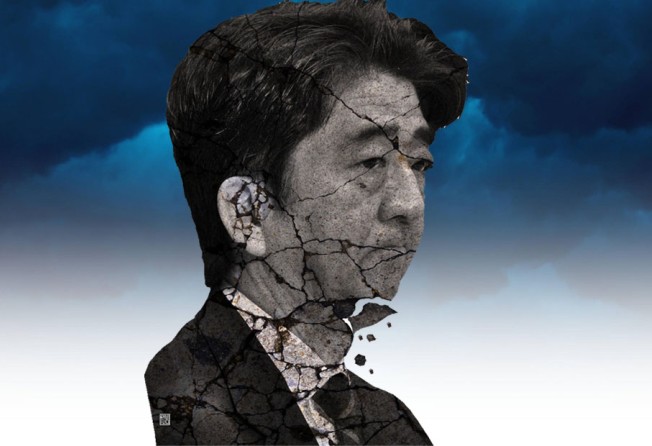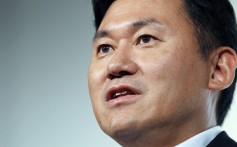
Seismic cracks in Abenomics
Doubts cast over Japanese PM's commitment to reform push amid opposition from influential and politically well-connected interests

Have the first - seismic - cracks begun to occur in Abenomics, Prime Minister Shinzo Abe's bold plan to reform and get Japan's economy moving again? The head of one of the country's most innovative companies thinks so and has threatened to quit Abe's key panel advising the government on economic reforms and may even sue the government.

Mikitani has a vested interest, but he is right to raise a key point of principle and ask whether Abe is backtracking on his promise to open up the economy in the face of opposition from entrenched factions within the ruling Liberal Democratic Party.
"Abe's growth strategy was about bringing down regulatory barriers and cultivating new businesses and services," Mikitani said. "It's disheartening to see that now going in the opposite direction. Rather than disappointed, I'd say that I'm fed up."
His argument may seem petty when the drugs the Ministry of Health, Labour and Welfare plans to exclude from internet sales are only 1 per cent of the total, but they include some of the most popular ones, including the painkiller Loxonin S and the allergy drug Allegra FX.
But the far more important argument is that the ministry's plan is a concession to powerful medical interests and calls into question Abe's reform commitment. Who will be next to throw their weight around? Certainly, the farmers and agricultural interests and the powerful construction companies can be counted on. Japan has no shortage of influential and politically well-connected interests with lucrative turf to protect.
So far, Abenomics has won plenty of praise. Anoop Singh, the director for the Asia and Pacific department of the International Monetary Fund, said last month: "The policy actions taken so far - including monetary and fiscal stimulus, and the decision to participate in [Trans-Pacific Partnership] negotiations - have put Japan at the centre of the global economic map."
Recent economic news has been good, with Japan rising faster than other leading industrialised nations, showing annualised 3.8 per cent growth in the past nine months. Exports have risen, thanks to monetary easing that has weakened the yen, private consumption has been robust and there have even been green shoots of inflation after many hard winters of deflation.

But the easy work has been done. The third arrow that Abe promised was deregulation and reform of the economy, without which the fiscal and monetary stimulus would falter and fade.
Mikitani is not alone in his criticism. Robert Feldman of Morgan Stanley MUFG Research, said last week that the health ministry's drug decision "was a victory for the vested interests. Abe is not likely to reverse the decision".
Tobias Harris of Teneo Intelligence, a political risk consultancy, said: "The third arrow is so weak it is hard to find anyone who thinks it is much of a strategy. Everyone is disappointed."
Feldman points to a depressing structural fault in the decision to limit the sales of the drugs because the health ministry has established the precedent that will prevent internet sales even when a doctor has issued an electronic prescription.
"My policy and industry contacts believe that the pharmacists' association used political power influence to prevent further inroads of internet companies in drug distribution," Feldman adds.
Japan's market for prescription medicines is worth about 9 trillion yen (HK$699.8 billion) a year.
Abe now risks anti-reform forces circling him both outside his ruling LDP, through the business associations, and inside the party, from his fellow lawmakers who are funded by big business.
He set an unfortunate precedent for himself when he was prime minister previously and allowed rebel LDP members who had voted against postal reform under Junichiro Koizumi back into the party fold.